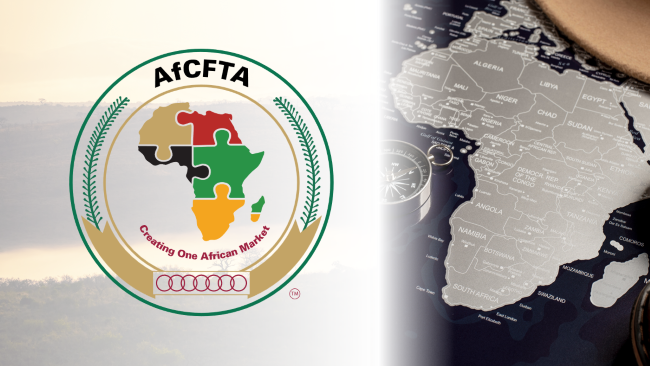Nigeria Launches Discounted Intra-African Air Cargo Corridor to Unlock AfCFTA Trade Winds

In a strategic push to reposition Nigeria as a continental export leader, the Federal Government, in partnership with the United Nations Development Programme (UNDP) and Uganda Airlines, has launched the Nigeria-East/Southern Africa Air Cargo Corridor—a bold logistics initiative that offers up to 75% discount in cargo rates for Nigerian exporters.
Unveiled in Abuja during celebrations marking Africa Day, the initiative is the first of its kind under the operational phase of the African Continental Free Trade Area (AfCFTA) and is designed to dramatically slash the cost and time of moving Made-in-Nigeria goods to key African markets.
“This corridor is more than just a trade route—it’s a lifeline for Nigeria’s non-oil economy,” said Dr. Jumoke Oduwole, Minister of Industry, Trade and Investment.
“It’s a direct fulfillment of President Bola Tinubu’s commitment to expanding Nigeria’s export footprint across Africa.”
The Trade Pathway: Lagos and Abuja to Kampala, Nairobi, and Johannesburg
Operating out of Lagos and Abuja, the air corridor links Nigerian businesses to three strategic continental hubs—Kampala (Uganda), Nairobi (Kenya), and Johannesburg (South Africa). These markets are gateways to the broader East and Southern African economic blocs, providing Nigerian exporters with speedier and cheaper access to regional supply chains.
Cargo rates along the corridor have been **heavily discounted—between 50% to 75%—**with reduced regulatory surcharges to further lower barriers to trade.
Empowering MSMEs, Women, and Value-Added Exports
Targeted at Micro, Small and Medium Enterprises (MSMEs), the corridor gives special preference to members of key national trade associations, including:
- NASSI (Nigeria Association of Small Scale Industrialists)
- NASME (Nigeria Association of Small and Medium Enterprises)
- WCCIMA (Women Chamber of Commerce, Industry, Mines and Agriculture)
The inaugural cargo flight carried a curated basket of Nigerian-made products—textiles, cosmetics, agro-processed goods, and fashion accessories—entirely supplied by women-owned businesses. These women were celebrated as trailblazers of intra-African commerce, setting a precedent for inclusive, gender-forward export strategies.
“Today’s flight isn’t just about trade—it’s about transformation,” Oduwole emphasized.
“We’re proving that Nigerian MSMEs—especially women-led—can lead the charge into Africa’s trillion-dollar marketplace.”
AfCFTA Now Real: Nigeria’s Tariff Concessions Officially Gazetted
The launch of the cargo corridor follows Nigeria’s formal gazetting of its Provisional Schedule of Tariff Concessions (PSTCs) in April, signaling the country’s readiness to fully leverage AfCFTA’s preferential trade protocols. The corridor is a tangible step in moving from paper to practice, offering exporters real-time access to the benefits of lower tariffs and reduced red tape across the continent.
This is also a diplomatic win: With support from the UNDP Regional Bureau for Africa, Nigeria is positioning itself not just as a signatory to AfCFTA, but as a shaper of its execution and success.
Institutional Collaboration Anchoring Aviation-Led Trade Growth
Behind the scenes, the corridor is the product of intense cross-agency coordination involving the Federal Ministry of Aviation, Nigeria Customs Service, Federal Airports Authority of Nigeria (FAAN), and the Ministry of Finance.
“This initiative reflects how aviation infrastructure, trade policy, and regulatory alignment can work in concert to stimulate real economic diversification,” one aviation insider noted.
As intra-African logistics continues to evolve into a cornerstone of 21st-century development, Nigeria is now establishing itself as a key cargo gateway—not just for West Africa, but for the continent at large.
BRANDECONOMY Insight
✈️ The Nigeria-East/Southern Africa Air Cargo Corridor is a strategic leap in unlocking AfCFTA’s promise. By backing MSMEs, subsidizing freight, and integrating logistics and policy, Nigeria is using aviation not just as a transport mode, but as a trade accelerator. The next challenge? Scale, sustainability, and sector-wide digitalisation.
KEY DETAILS
- Corridor Launched: May 2025 (Africa Day)
- Export Hubs: Lagos & Abuja
- Destination Markets: Uganda, Kenya, South Africa
- Cargo Rate Discount: 50%–75%
- First Export Batch: Women-owned businesses; textiles, cosmetics, agro-goods
- AfCFTA Tariff Concessions: Gazetted April 2025
Stay tuned to BRANDECONOMY for exclusive trade corridor case studies, MSME impact stories, and how this corridor could reshape Africa’s export landscape.











